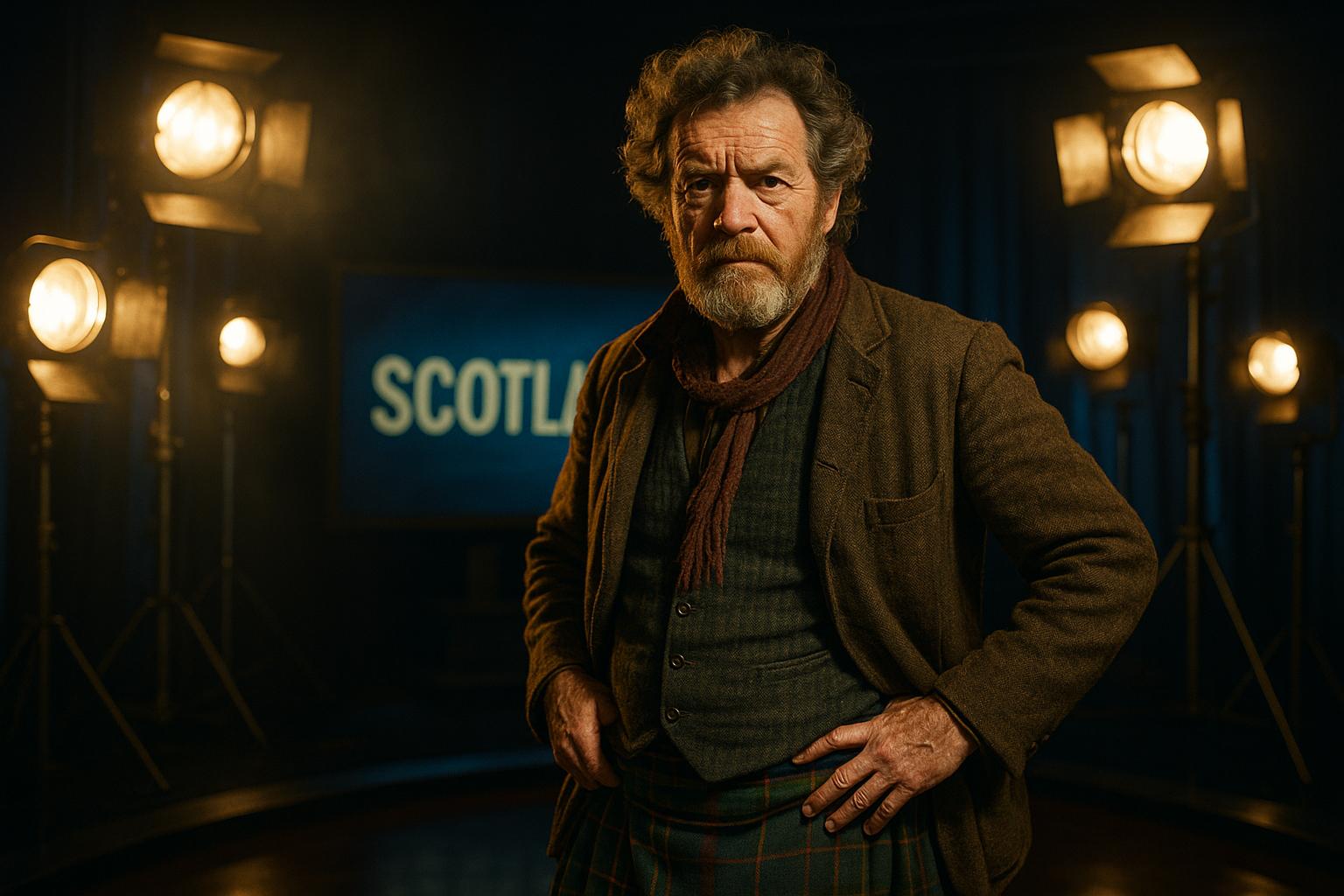Stuart McGugan’s journey from a modest upbringing in the Angus village of Letham to becoming a beloved figure in British television is a testament to determination and talent overcoming initial doubt. As a young boy, McGugan’s declaration to his history teacher that he aspired to be an actor was met with sniggers and scepticism. Yet, he persisted, driven by a dream that would take him from local theatre stages to international tours, including a stint in Los Angeles with the Royal Shakespeare Company in 1969 and a developing career in San Francisco, where he briefly clashed with the American Equity union. His versatility as an actor was soon recognised, leading to his involvement in some of Britain’s most memorable TV productions.
McGugan is best known for his portrayal of Gunner ‘Atlas’ Mackintosh in the 1970s sitcom It Ain’t Half Hot Mum, created by Jimmy Perry and David Croft. The show reached an audience of up to 17 million viewers at its peak, highlighting its widespread popularity. However, the sitcom is now criticised for its depictions of racism and homophobia, reflecting attitudes and stereotypes of the British Army in colonial India at the time. McGugan has defended the series as a reflection of historical reality, referring to letters he wrote responding to accusations of the show promoting negative stereotypes. He underlined that the creators drew from authentic experiences during their own time managing concert parties in military camps, underscoring the show's roots in genuine, if problematic, history.
Beyond this defining role, McGugan’s career featured a notable tenure as a presenter on the children’s television programme Play School for over a decade. Known affectionately for bringing a touch of Scottish charm to the show, McGugan’s time there was not without incident. Rumours persist—corroborated by McGugan himself—that he once attempted to drop-kick the beloved character Humpty over the backdrop during a recording, a move that almost cost him his job. He recounts the playful chaos behind the scenes, revealing that the show's toys sometimes "acted up," with Big Ted even having a squeaker that would let out comical sounds when tipped over.
In the 1980s, McGugan’s career took a significant artistic leap with his role as Bomba MacAteer in the critically acclaimed BBC drama Tutti Frutti. Set around a struggling Glasgow rock ‘n’ roll band, the series featured a stellar cast including Robbie Coltrane and Emma Thompson, who mastered a challenging Glasgow South Side accent. McGugan, who nearly lost the role by over-negotiating his fee, came to regard Tutti Frutti as the finest television series produced by BBC Scotland, a sentiment shared by critics and audiences alike. His experiences during the production display not only the camaraderie among the cast but also highlight the high artistic standards that distinguished the show in British television history.
Stuart McGugan has also had a colorful personal life and career outside acting. Early years saw him working in journalism with stints at local Scottish newspapers before attending the Royal Scottish College of Dramatic Art. Today, he lives in North Norfolk with his wife Cordelia Monsey and their son Mitch, while continuing to engage audiences with storytelling shows like Aesop, Coco and Me, which creatively blends fables with the Doric dialect. McGugan has expressed concern over children’s current reliance on digital devices for stories, underscoring the importance of preserving oral storytelling traditions.
Reflecting on a career that might have seemed improbable when he first declared his ambition, McGugan acknowledges that his roots in his local Scottish community were foundational to his journey. His new book, Do It! Scenes from an Actor’s Life, offers a collection of anecdotes from his decades in show business, providing insight into both the highs and chaos of life in his profession. Through it all, he maintains a deep gratitude for the path his life has taken, marveling at the fortune of being born in the right place and time to pursue his dreams.
📌 Reference Map:
- Paragraph 1 – [1], [3]
- Paragraph 2 – [1], [6]
- Paragraph 3 – [1], [2], [4]
- Paragraph 4 – [1], [3], [7]
- Paragraph 5 – [1], [3], [5]
Source: Noah Wire Services
